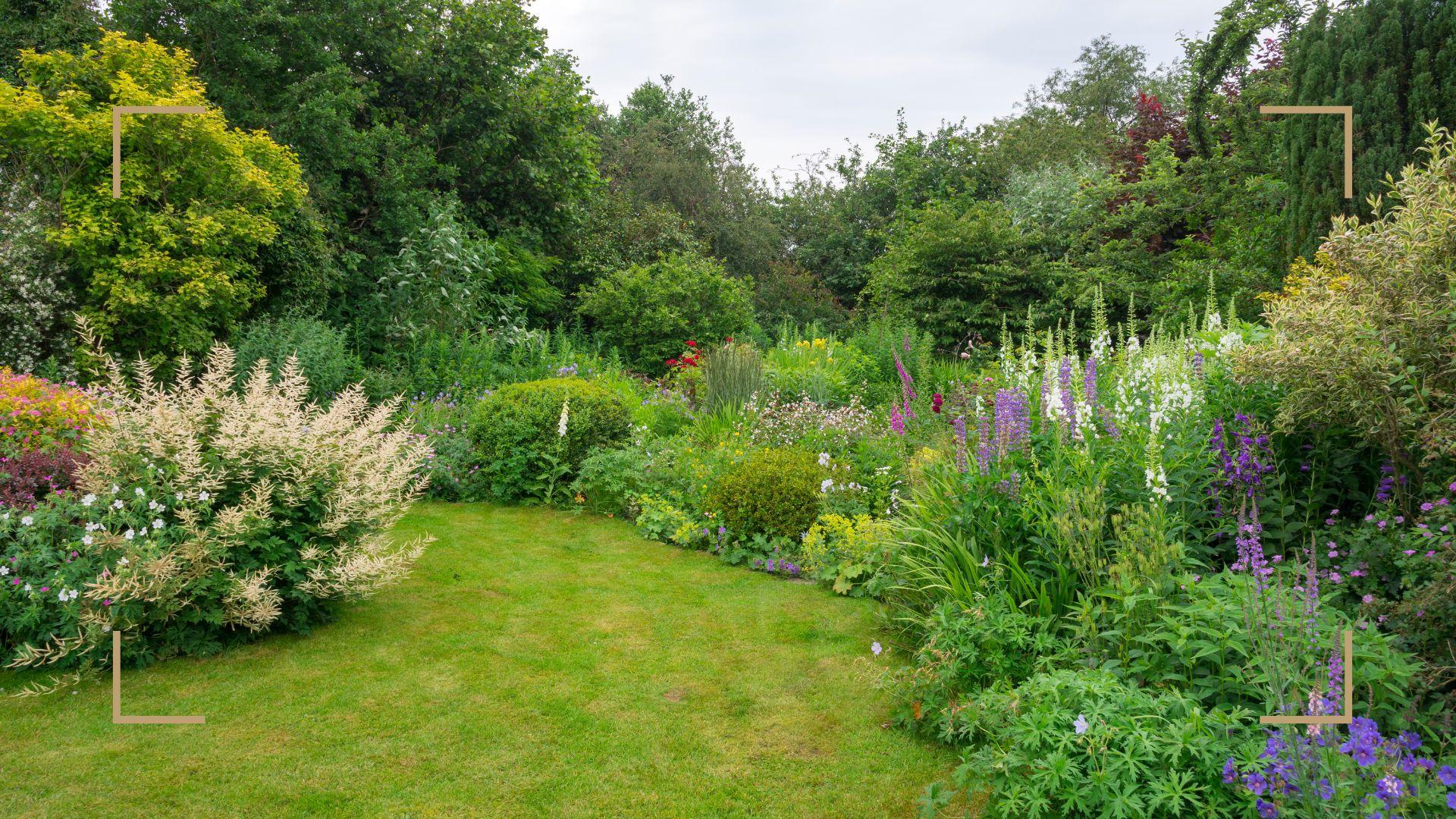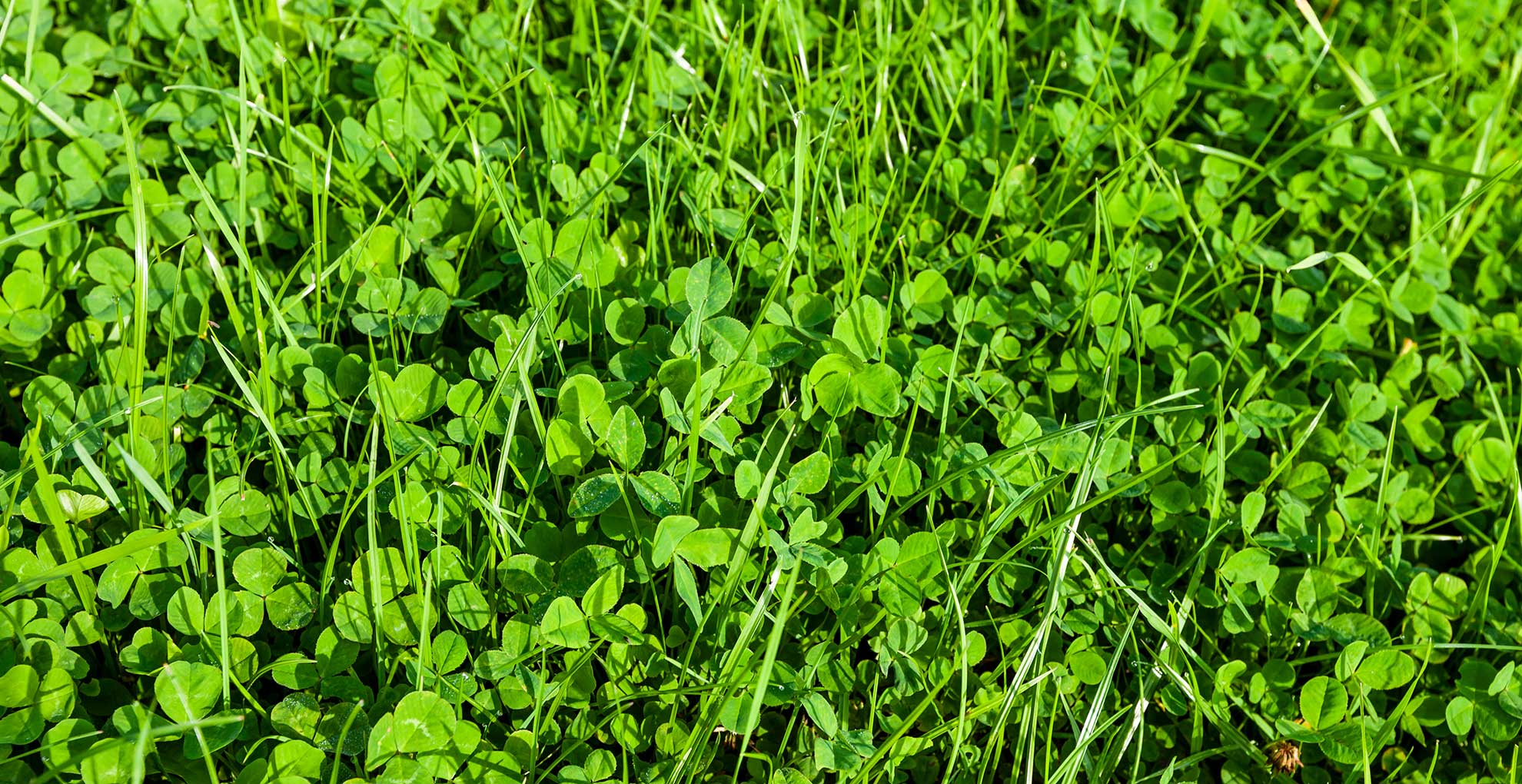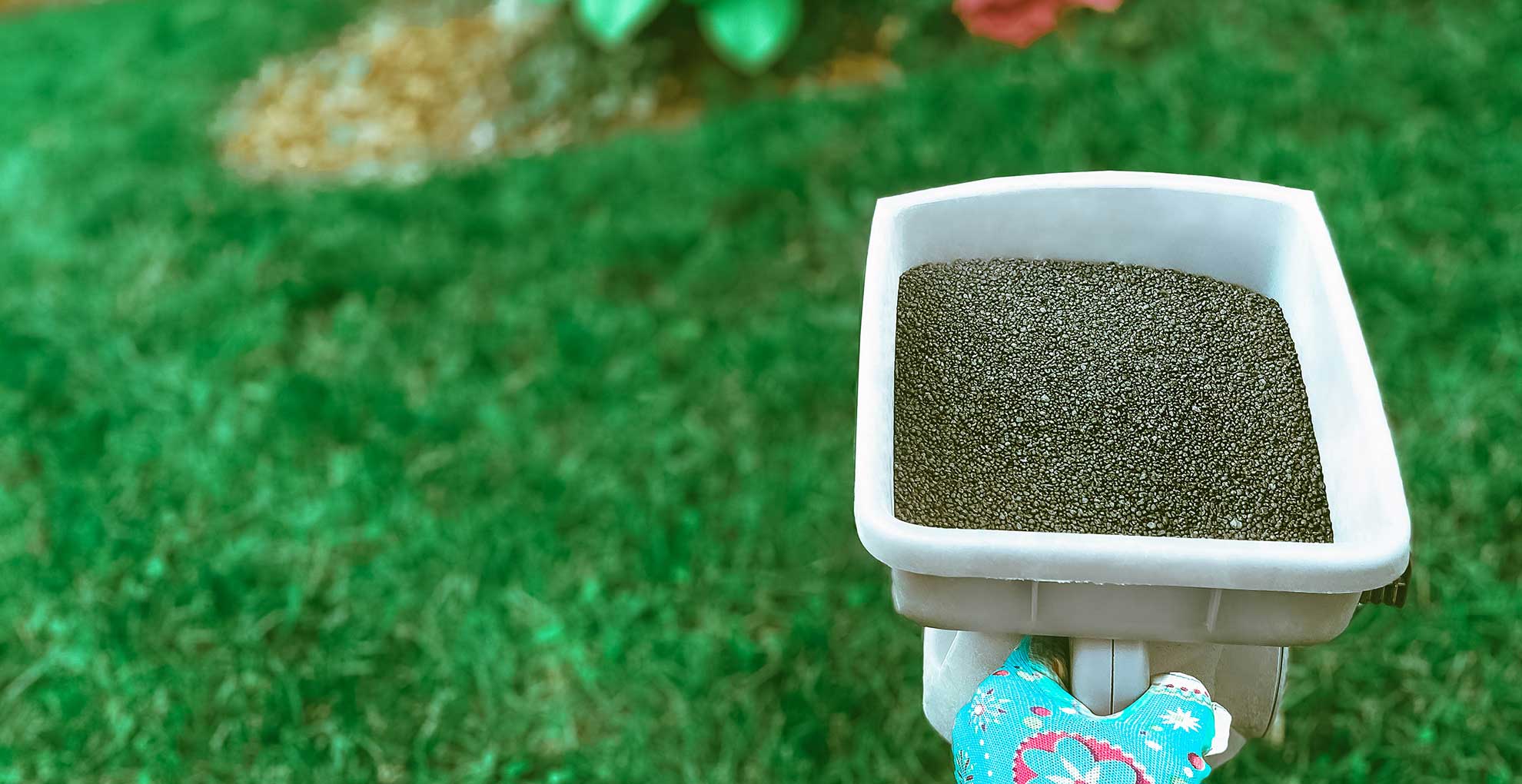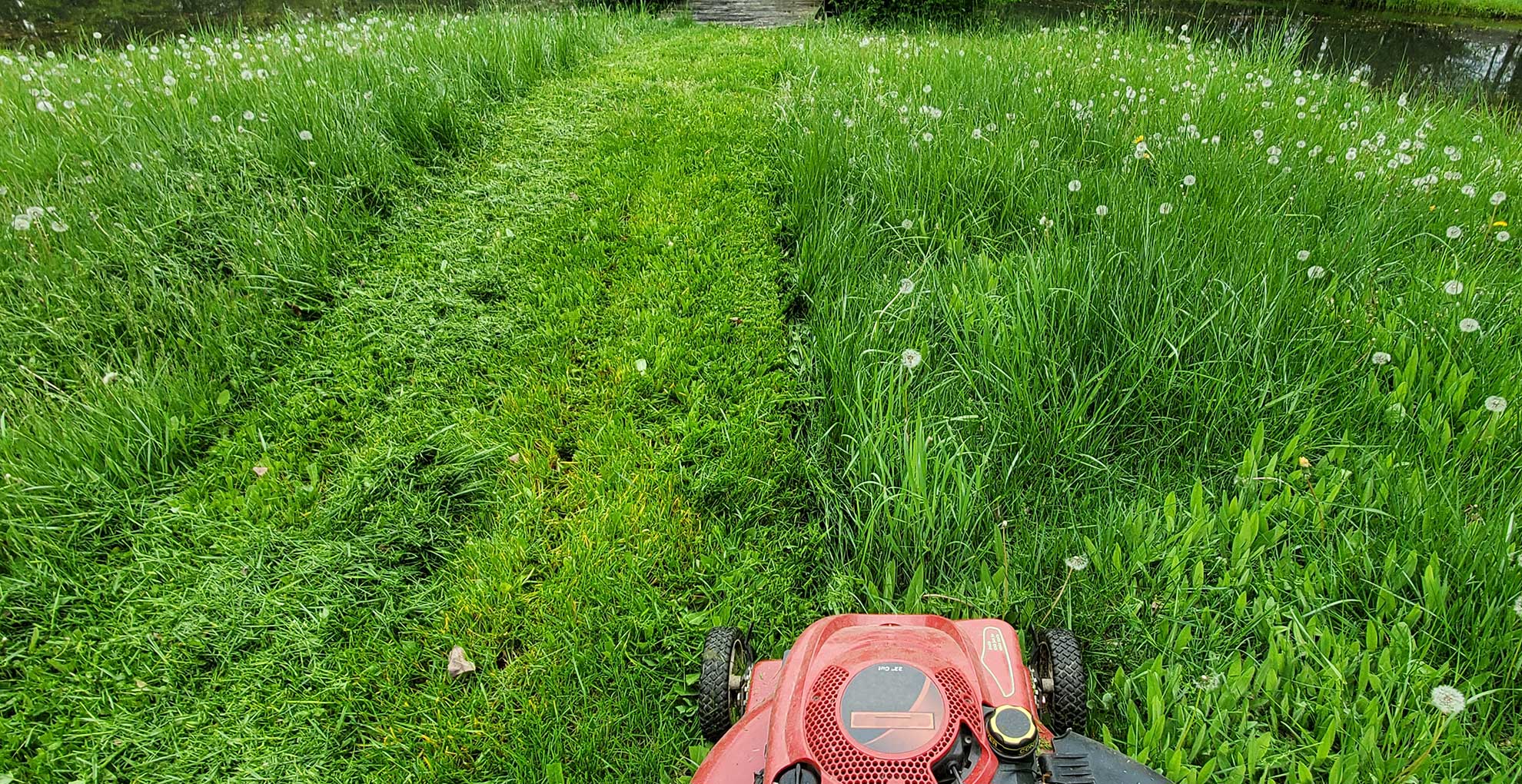Experts reveal how to get rid of clover in a lawn without damaging grass
These expert-approved methods explain how to deal with this pesky weed once and for all


Need to know how to get rid of clover in your lawn without ruining the surrounding area to restore your pristine patch of grass? You're in the right place because we have all you need to know, including how to remove and prevent clover patches from returning.
Weeds of any kind are the unwelcomed pest in any well-tended garden trend, littering luscious green grass with unsightly patches that have a tendency to take over if left untreated. It's therefore imperative to make weeding part of your essential summer lawn care routine alongside prioritising how often you mow and frequently fertilise your lawn.
Luckily getting rid of clover on a lawn without ruining the surrounding grass is a simple enough task, as our team of lawn care experts helpfully explains below.
How to get rid of clover in a lawn
"Clover is a tricky weed to deal with as it’s pretty resilient when it comes to both cold and warm weather and can spread across the garden when left untreated," explains Nat White, garden expert at Rated People. "Thankfully, clover isn’t a toxic weed, so there is no need to worry if you have pets in the garden; however, it can look unpleasant when it starts to take over your lawn."
If you have clover in your lawn and are looking at how to get rid of it there are a number of options to explore.
Generally, when looking to get rid of weeds removing them by hand is always a first measure, provided the spread is not too vast. "One method is hand-pulling, which can be effective, especially in the peak summer heat," explains Teri Valenzuela, natural science manager at lawn care specialist Sunday. "This involves carefully digging out the clover and its root system with minimal soil disruption."
"Although it takes longer to treat clover by hand, it does save you the expense of buying weed killer," says Nat. "This is an effective way of removing clover from your lawn and it will work especially well if you only have a small patch of clover to deal with."
Sign up to our free daily email for the latest royal and entertainment news, interesting opinion, expert advice on styling and beauty trends, and no-nonsense guides to the health and wellness questions you want answered.
"The only tools you’ll need are a hand fork and your hands. Start by plucking the clover up, and using the hand fork, make sure you remove any roots left behind in the soil to ensure they don’t grow back. This method will leave your healthy lawn untouched and result in a clover-free patch of grass."

If the problem is more widespread, like moss in a lawn, you might choose to go down the route of a specialist chemical treatment. "Weedkilling products containing Fluroxypyr are particularly effective at controlling the plant," explains Matt Adams, lawn feed expert and founder of The Relentless Gardener. "So check the ingredients in your products before purchasing. Fluroxypyr is a selective herbicide meaning it will only harm target weeds and cause little to no effect elsewhere."
"Once you've successfully managed the clover in your lawn, fill the resulting bare spots by planting grass seed to prevent future weed growth,' suggests Teri. "Just be mindful that growing grass from seed during peak summer heat might require extra watering and care."
How to prevent clover in a lawn: expert advice
Prevention is better than a cure for most garden weeds, therefore it's best to do all you can to preserve your lawn throughout the growing season.
1. Fertilise to ensure healthier grass
"Clover thrives when the grass is not fertilised," says Matt. 'Therefore if you fertilise your grass in Springtime and Autumn, you'll give your lawn the growing advantage and reduce the chance of clover being able to take over."
Avoid a common lawn care mistake by checking the conditions before fertilising, because failing to do so can make your efforts less effective and therefore not reap the rewards of healthier grass or a clover-free cover.

2. Give grass a measured mow
Mowing can also help. However, mowing does come with a caveat to try to beat the clover takeover, as Matt explains: "You must mow your grass high to give your grass an advantage over the clover, rather than cutting the grass too short."
Set your mower blades higher to ensure your grass retains its strength at the root then has to deliver nutrients right up to the top and therefore sustains a greater presence below ground.
3. Restrict light
Like most plants, clover needs sunlight to keep thriving so trying to starve it of sunlight will eventually kill it off.
"One way to restrict access to sunlight is to simply cover the affected area with a dark, heavy-duty bin bag or sheet (something that can withstand rain)," says Nat. "The clover should be dead after a few weeks, depending on the weather, and you should be able to pull up any remaining clover quite easily.
"Another way to restrict sunlight is to keep your grass slightly longer – because clover has a shorter root it can’t grow as tall as the surrounding grass. By keeping your lawn slightly longer, the clover will find itself lacking in the sunlight it needs over time."

4. Ensure good hydration
"The best way to fight any of these weeds is by using organic fertilisers, mowing high, and watering properly," Matt summarises. the reason watering plays such a vital role in prevention is to ensure the grass is at optimum health to be able to 'outgrow' any weeds, such as clover, that try to invade the turf.
How often and how long you should water a lawn, also identifying the best time to water your lawn are all key factors in giving your grass vital hydration.
What kills clover naturally?
"Clover tends to thrive in soils with low nitrogen and high phosphorus, or in damp, shaded areas of lawns where grass struggles to grow," explains Teri. "In order to reduce clover presence naturally, you have to first resolve the underlying issue first. Start by planting the right grass for your location and yard needs, and then introduce better lawn care practices like mowing at the correct length for your grass and watering areas of your lawn based on drainage or moisture needs.
There are those who suggest vinegar to treat clover in the lawn naturally, but it will affect the acidity levels of the soil so we recommend avoiding this natural method.
What are the benefits of clover?
There's been a horticultural movement in recent years that firmly supports a wilder approach to gardening and planting. This ethos would argue that moss lawns are better than grass and also that clover is a welcome addition to lawns because of the benefits it offers.
"Clovers are a type of legume, which are plants that have bacteria-filled nodules on their root systems that help ‘fix’ nitrogen from the air," Teri explains. "This nitrogen is made available to plants in the soil and naturally fertilises them. This means, clover in lawns is beneficial to grass and helps provide natural forms of nitrogen to your lawn."

Tamara is a highly experienced homes and interiors journalist with a career spanning over 22 years. Now the Lifestyle Editor of womanandhome.com, she previously spent 18 years working with the style teams at Country Homes & Interiors and Ideal Home. With these award-winning interior teams, she gained a wealth of knowledge and honed her skills and passion for styling and writing about every aspect of lifestyle and interiors.
A true homes and interiors expert, Tamara has been an ambassador for leading interior brands on multiple occasions, including appearing on Matalan’s The Show and presenting at top interior trend forecasting events such as the Autumn Fair and Spring Fair.